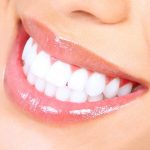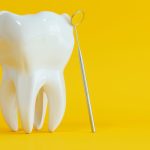Why Teeth Tingle: Common Causes and Remedies
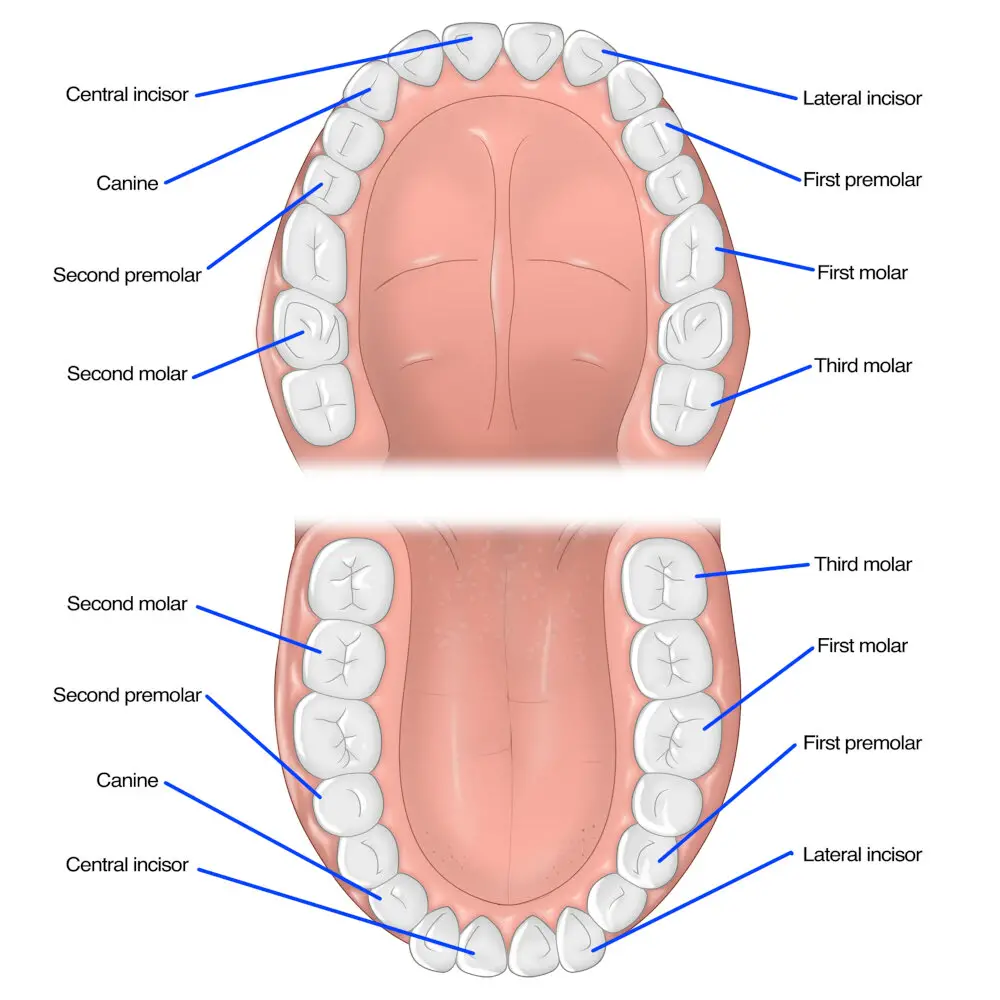
Teeth tingling is a sensation that can be uncomfortable and sometimes even painful. It is a common condition that affects people of all ages and can be caused by a variety of factors. Some people experience tingling in their teeth after consuming hot or cold beverages, while others may experience it as a result of certain dental procedures. Whatever the cause, finding relief from tooth tingling can be a challenging task. Fortunately, there are several remedies available that can help alleviate this condition and improve your overall oral health. One of the most common causes of tooth tingling is sensitivity. This occurs when the enamel on the teeth is worn down, exposing the underlying dentin. When this happens, the teeth become more sensitive to hot and cold temperatures, causing a tingling sensation. Other common causes of tooth tingling include cavities, gum disease, and tooth decay. These conditions can all cause sensitivity and discomfort in the teeth, making it difficult to eat and drink certain foods. If left untreated, they can also lead to more serious dental problems, such as abscesses and tooth loss.
Teeth tingling is a sensation that can be described as a prickling or numbing feeling in the teeth or gums. This sensation can be caused by a variety of factors, including tooth sensitivity, nerve damage, sinus problems, or even anxiety. Tooth sensitivity occurs when the outer layer of enamel on the teeth wears away, exposing the sensitive inner layers. This can be caused by brushing too hard, grinding teeth, or consuming acidic foods and drinks. Nerve damage, on the other hand, can result from dental procedures, infections, or trauma to the teeth. Sinus problems can also cause teeth tingling, as the sinuses are located close to the upper teeth and pressure or inflammation can affect the nerves. Anxiety can also trigger teeth tingling, as the body’s stress response can cause sensations throughout the body. Depending on the cause, there are various remedies available for teeth tingling, ranging from using desensitizing toothpaste to seeking medical treatment for underlying conditions.
Understanding the causes and remedies for teeth tingling is crucial for maintaining good oral health and overall well-being. Tooth sensitivity can be caused by a variety of factors, including gum recession, tooth decay, and enamel erosion. Identifying the underlying cause of tooth sensitivity is essential in developing an effective treatment plan. Remedies for tooth sensitivity may include changes in oral hygiene habits, such as using a soft-bristled toothbrush and avoiding acidic foods and drinks. Additionally, dental treatments, such as fluoride treatments and dental bonding, may be necessary to alleviate tooth sensitivity. By understanding the causes and remedies for tooth sensitivity, individuals can take proactive steps to protect their oral health and prevent further damage to their teeth.
Dental Issues
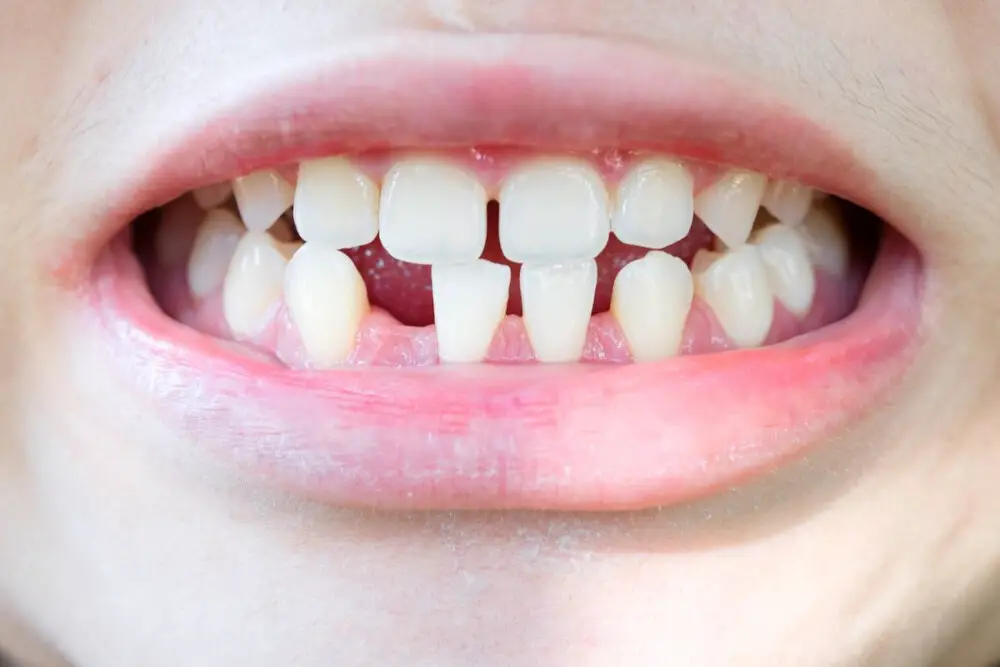
Dental issues are a common concern for people of all ages. Tooth decay, gum disease, and tooth sensitivity are just a few of the problems that can arise if proper oral hygiene is not practiced. Tooth decay occurs when bacteria in the mouth produce acid that erodes the tooth’s enamel. This can cause cavities, which if left untreated, can lead to tooth loss. Gum disease, also known as periodontitis, occurs when the gums become inflamed and infected. This can lead to tooth loss if not treated promptly. Tooth sensitivity is when the teeth become sensitive to hot or cold temperatures, sweet or acidic foods, or even air. This can be caused by wearing away of the tooth’s enamel or gum recession. There are several remedies for dental issues, and prevention is always the best approach. Brushing and flossing regularly can help prevent tooth decay and gum disease. Eating a healthy diet that is low in sugar and high in calcium can also help prevent dental problems. Fluoride toothpaste and mouthwash can strengthen tooth enamel, reducing the risk of cavities. For those who already have tooth sensitivity, using a desensitizing toothpaste or getting a fluoride treatment from a dentist can help. Regular dental check-ups and cleanings are also essential to maintaining good oral health. By taking care of your teeth and gums, you can avoid many dental issues and keep your smile healthy and bright.
Cavities and tooth decay are some of the most common dental problems, caused by the breakdown of tooth enamel due to acid produced by bacteria in the mouth. Poor dental hygiene, sugary and starchy foods, and dry mouth can all contribute to the development of cavities. Symptoms of cavities include tooth sensitivity, pain, and visible holes or pits in the teeth. Treatment for cavities typically includes filling the affected tooth, although more extensive damage may require a root canal or extraction. To prevent cavities, it is important to maintain good oral hygiene, limit sugary and starchy foods, and visit the dentist regularly for cleanings and checkups.
Gum disease, also known as periodontal disease, is a common condition that affects the gums and supporting tissues of the teeth. It is caused by the buildup of plaque, a sticky film of bacteria that forms on the teeth and gums. If left untreated, gum disease can lead to serious oral health problems, including tooth loss. The symptoms of gum disease can vary, but may include red, swollen, or bleeding gums, bad breath, and sensitive teeth. Treatment for gum disease typically involves a combination of professional cleaning, improved oral hygiene, and in some cases, surgical procedures. It is important to take steps to prevent gum disease by maintaining good oral hygiene habits, including brushing twice a day, flossing daily, and visiting the dentist regularly.
Teeth grinding, also known as bruxism, is a common condition that affects people of all ages. It is characterized by the involuntary gnashing, clenching, or rubbing of teeth, often during sleep. The causes of teeth grinding are varied, but stress and anxiety are often cited as contributing factors. Other causes may include misaligned teeth, sleep disorders, or certain medications. Symptoms of teeth grinding may include headaches, jaw pain, and tooth sensitivity. Treatment options include relaxation techniques, stress management, and the use of mouth guards or splints to protect teeth from damage. It is important to address teeth grinding early on to prevent further dental complications.
Sensitivity

Sensitivity is a common dental issue experienced by many people. It is characterized by a tingling sensation in teeth when exposed to certain stimuli such as hot or cold food and drinks, sweet or sour items, and even air. This discomfort can also be felt during brushing or flossing. The main cause of sensitivity is the exposure of the tooth’s inner layer, the dentin, which contains numerous tiny tubules leading to the tooth’s nerve endings. When the protective enamel layer is damaged or worn away, the dentin becomes exposed, leading to sensitivity. Other causes of sensitivity include gum disease, teeth grinding, and acidic beverages. Fortunately, there are several remedies for sensitivity. The first step is to visit a dentist, who can determine the underlying cause of the sensitivity and suggest appropriate treatment. This may include the use of desensitizing toothpaste, fluoride treatments, or dental bonding to protect the exposed dentin. In some cases, a root canal may be necessary to remove the damaged nerve and eliminate sensitivity. Additionally, avoiding acidic foods and drinks and using a soft-bristled toothbrush can help prevent further damage to the enamel and reduce sensitivity. By taking these steps, individuals can alleviate the discomfort of sensitivity and maintain good oral health.
When it comes to enjoying food and drinks, temperature plays a significant role in our experience. Whether we prefer hot or cold, our teeth can sometimes react in unexpected ways. Sensitive teeth are a common issue that affects many individuals, and it can be exacerbated by consuming extremely hot or cold foods and drinks. The sudden change in temperature can cause the nerves in our teeth to become more sensitive, resulting in a sharp, tingling sensation. To remedy this, it is recommended to consume food and drinks at a moderate temperature, gradually increasing or decreasing the temperature to avoid sudden shocks to the teeth. Additionally, using toothpaste designed for sensitive teeth and avoiding overly acidic or sugary foods can help alleviate discomfort.
Acidic foods and drinks are notorious for causing tingling sensations in teeth. These types of foods and beverages contain high levels of acid, which can erode the enamel of the teeth, leading to sensitivity and discomfort. Examples of acidic foods and drinks include citrus fruits, tomatoes, pickles, vinegar, soda, and sports drinks. While these foods and drinks can be enjoyed in moderation, frequent consumption can lead to long-term damage to the teeth. To minimize the effects of acidic foods and drinks, it is recommended to rinse the mouth with water after consuming them and to wait at least 30 minutes before brushing to allow saliva to neutralize the acid.
Sweet foods and drinks are a common culprit when it comes to tooth sensitivity. The high sugar content in these items can lead to tooth decay and erosion, which can cause discomfort and pain. The sugar in these foods and drinks also feeds the harmful bacteria in our mouths, leading to plaque buildup and further tooth damage. Additionally, acidic sweet drinks, such as soda, can erode the enamel on our teeth, making them more sensitive and susceptible to damage. While it may be hard to resist the temptation of sweets, it is important to limit our intake and practice good oral hygiene to prevent tooth sensitivity and damage.
Medical Conditions

Medical conditions can also be a common cause of teeth tingling. One such condition is temporomandibular joint disorder (TMJ). TMJ is a condition that affects the jaw joint and can cause pain and discomfort in the jaw, neck, and shoulders. It can also cause tingling in the teeth and gums. This condition is often caused by grinding or clenching the teeth, which puts pressure on the jaw joint. Other causes of TMJ include injury to the jaw, arthritis, and stress. Treatment for TMJ may include medications, physical therapy, and dental appliances such as a mouthguard. In severe cases, surgery may be necessary. Another medical condition that can cause teeth tingling is multiple sclerosis (MS). MS is a disease that affects the central nervous system and can cause a range of symptoms, including tingling or numbness in the teeth and gums. This is caused by the damage to the nerves that control sensation in the face and mouth. Treatment for MS may include medications to manage symptoms, physical therapy, and lifestyle changes such as a healthy diet and exercise. It is important to consult with a healthcare provider if you are experiencing teeth tingling as a symptom of MS or any other medical condition, to ensure proper diagnosis and treatment.
Sinus infections, also known as sinusitis, occur when the sinuses become inflamed due to an infection, allergy, or other irritants. Symptoms of sinus infections include facial pain, pressure, headache, congestion, and a runny nose. Toothache and tingling sensations in the teeth can also occur due to the close proximity of the sinuses to the teeth. Treatment for sinus infections may include antibiotics, decongestants, and pain relievers. In some cases, sinus surgery may be required to remove blockages and improve sinus drainage. Preventative measures such as avoiding allergens and practicing good hygiene can help reduce the risk of developing sinus infections.
Vitamin deficiencies could be a common cause of teeth tingling. Specifically, a lack of vitamin B12, vitamin D, or calcium can lead to tingling sensations in the teeth. Vitamin B12 is essential for the proper functioning of the nervous system and a deficiency can cause nerve damage, which can lead to tingling in the teeth. Vitamin D is necessary for the absorption of calcium, which is crucial for strong teeth and bones. A deficiency in either of these can result in weakened teeth and tingling sensations. It is important to maintain a balanced and nutritious diet to ensure that your body receives the necessary vitamins and minerals to maintain healthy teeth and prevent tingling sensations.
Nerve damage is one of the major reasons for teeth tingling. The nerves in our teeth are responsible for transmitting signals to the brain, which helps us to feel sensations such as hot, cold, and pressure. When these nerves are damaged, they can send false signals to the brain, resulting in a tingling sensation. Nerve damage can occur due to various reasons such as tooth decay, gum disease, trauma, or even aging. In some cases, nerve damage can be irreversible, leading to chronic tingling or numbness in the teeth. Therefore, it is essential to seek professional dental help as soon as possible to prevent further damage and find effective treatment options.
Other Causes
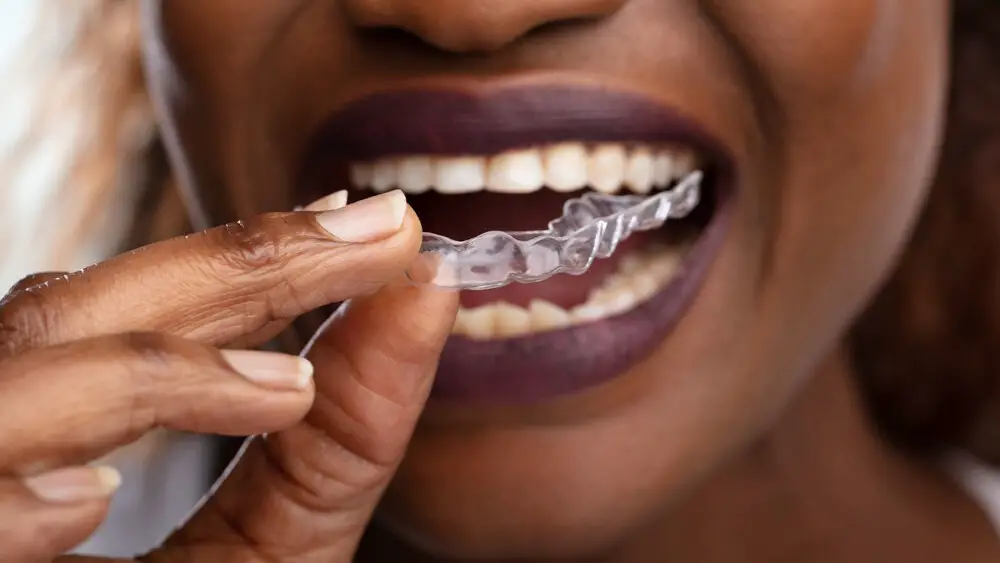
Apart from the common causes of teeth tingling, there are other potential factors that can lead to this uncomfortable sensation. One of these is dental procedures such as filling, crown placement, and root canal treatment. These procedures involve drilling and manipulating the teeth and gums, which can irritate the nerves and cause a tingling sensation. However, this type of tingling is usually temporary and should subside within a few days to a week. Another possible cause of teeth tingling is a condition called bruxism, which is characterized by clenching or grinding the teeth. This can put pressure on the teeth and cause the nerves to become irritated, leading to tingling or numbness. Bruxism can be caused by stress, anxiety, or sleep disorders and can also lead to other dental problems such as tooth wear, gum recession, and jaw pain. Treatment for bruxism may include stress management techniques, wearing a mouthguard at night, or addressing any underlying sleep disorders.
Trauma or injury to the mouth or teeth is a common cause of tooth tingling or sensitivity. This can occur due to various reasons such as accidental falls, sports injuries, or car accidents. The impact can cause damage to the teeth, gums, and nerves resulting in a sharp or dull tingling sensation. In some cases, the trauma may also lead to tooth fractures or enamel erosion. It is important to seek immediate dental care if you experience any trauma or injury to your mouth or teeth to prevent further damage and ensure proper treatment.
Braces or other dental appliances are commonly used to correct misaligned teeth or bite problems. While these devices can greatly improve a person’s dental health and appearance, they can also cause some discomfort and tingling sensations. This is because braces and other appliances apply pressure to the teeth and gums, which stimulates the nerves in the area. However, these sensations can usually be managed with over-the-counter pain relievers or by adjusting the appliance. It is important to follow your dentist’s instructions and attend regular check-ups to ensure that your braces or other appliances are working properly and not causing any further damage or discomfort.
Certain medications can cause a tingling sensation in the teeth as a side effect. These medications include those used to treat osteoporosis, cancer, and certain infections. The tingling sensation is caused by the medications affecting the nerves that supply sensation to the teeth. If you experience this side effect, it is important to talk to your healthcare provider about your options. They may be able to adjust your medication or prescribe a different one altogether. It is also important to maintain good dental hygiene to help manage any discomfort or sensitivity in your teeth.
Remedies

A tingly sensation in the teeth can be a bothersome experience, but fortunately, there are several remedies available to alleviate the discomfort. One of the most straightforward remedies is to rinse your mouth with warm water mixed with a pinch of salt. This can help to reduce the inflammation and clean any food particles that may be stuck between your teeth. Additionally, applying a cold compress to the affected area can numb the nerves and provide temporary relief. Over-the-counter pain medications, such as ibuprofen or acetaminophen, can also be effective in reducing tooth sensitivity. However, it is important to follow the recommended dosage and consult a healthcare professional before taking any medication. In addition to immediate remedies, there are also several long-term solutions that can help to prevent tooth sensitivity. Maintaining good oral hygiene practices, such as brushing and flossing regularly, can help to prevent the buildup of plaque and tartar that can cause sensitivity. Using a soft-bristled toothbrush and avoiding hard brushing can also minimize the risk of enamel erosion. Incorporating fluoride toothpaste and mouthwash into your oral hygiene routine can strengthen the enamel and reduce sensitivity. Additionally, avoiding acidic foods and drinks, such as citrus fruits and carbonated beverages, can prevent enamel erosion and reduce tooth sensitivity. By following these remedies and preventative measures, you can reduce the discomfort of tooth sensitivity and maintain optimal oral health.
Good oral hygiene practices are essential for maintaining healthy teeth and gums. Brushing your teeth twice a day with fluoride toothpaste, flossing daily, and using mouthwash can help prevent tooth decay and gum disease. It is also important to visit a dentist regularly for checkups and professional cleanings. Avoiding sugary and acidic foods and drinks can also help keep teeth healthy and prevent sensitivity. Additionally, using a soft-bristled toothbrush and brushing gently can prevent damage to the enamel, which can lead to sensitivity. By following these good oral hygiene practices, you can keep your teeth healthy and free from tingling sensations.
Sensitive toothpaste is a specialized toothpaste that is designed to alleviate the discomfort caused by sensitive teeth. It contains ingredients such as potassium nitrate and strontium chloride that help to desensitize the nerve endings in the teeth. These ingredients work by blocking the tiny tubules that connect the tooth’s nerve to the surface, which reduces the transmission of pain signals to the brain. Sensitive toothpaste is an effective solution for those who suffer from tooth sensitivity caused by exposed tooth roots, gum recession, or enamel erosion. It is important to use sensitive toothpaste regularly to maintain its benefits and to consult a dentist if the sensitivity persists or worsens.
Mouthguards or night guards are dental appliances that are designed to protect our teeth and jaws from clenching or grinding, which is a common cause of tooth sensitivity. These devices are typically made of soft materials that are molded to fit our teeth and are worn while we sleep. They work by creating a barrier between the upper and lower teeth, which helps to reduce the pressure and friction that can cause tooth enamel to wear down over time. Mouthguards and night guards are often recommended for people who suffer from bruxism, a condition that causes involuntary teeth grinding and clenching, as well as those who have a history of tooth sensitivity or damage. By using these devices, we can help to protect our teeth and prevent further damage, while also promoting better overall oral health.
Dietary changes can play a significant role in reducing the frequency of teeth tingling. Consuming foods high in sugar and acid can erode the enamel of the teeth, causing sensitivity. Therefore, it is important to incorporate a balanced diet with a focus on calcium and vitamin D-rich foods such as dairy products, leafy greens, and fortified cereals. Additionally, avoiding food and drinks that are highly acidic, such as citrus fruits and soda, can also help alleviate tooth sensitivity. Maintaining good oral hygiene practices such as brushing twice a day and flossing can also aid in reducing tooth sensitivity. By making simple dietary changes and practicing good oral hygiene, individuals can reduce the occurrence of teeth tingling and improve overall oral health.
When it comes to treating teeth tingling, there are a variety of medical treatments available depending on the underlying cause. For instance, if the tingling is due to tooth decay or gum disease, the dentist may recommend a dental filling, root canal treatment, or deep cleaning. In cases where the tingling is caused by a nerve problem, the dentist may prescribe medication or refer the patient to a specialist for further evaluation. Additionally, if the tingling is caused by teeth grinding or clenching, the dentist may recommend a mouthguard or other oral appliance to protect the teeth and jaw. Ultimately, the best course of treatment will depend on the specific cause of the teeth tingling and should be determined by a qualified dental professional.
Teeth tingling can be an uncomfortable sensation that many people experience, and it can be caused by a variety of factors. One of the most common causes is tooth sensitivity, which can be the result of enamel wear or gum recession. Another common cause is teeth grinding, which can lead to sensitivity and even damage to the teeth. Other causes include dental procedures, such as teeth whitening or fillings, and certain medical conditions, such as sinusitis or nerve damage. Remedies for teeth tingling include using desensitizing toothpaste, practicing good oral hygiene, wearing a mouthguard at night, and seeking treatment for any underlying medical conditions. It is important to address teeth tingling promptly to prevent further damage to the teeth and to alleviate any discomfort.
Experiencing teeth tingling can be a common occurrence, but if it persists, it is crucial to seek dental or medical advice. This sensation can be a sign of underlying dental issues such as cavities, gum disease, or tooth sensitivity. Additionally, it can be a symptom of more severe medical conditions like multiple sclerosis or a stroke. Neglecting to seek professional advice can lead to complications that can worsen the condition and require more extensive treatment. Therefore, it is essential to address the issue promptly to prevent any further damage to the teeth or overall health.
Conclusion
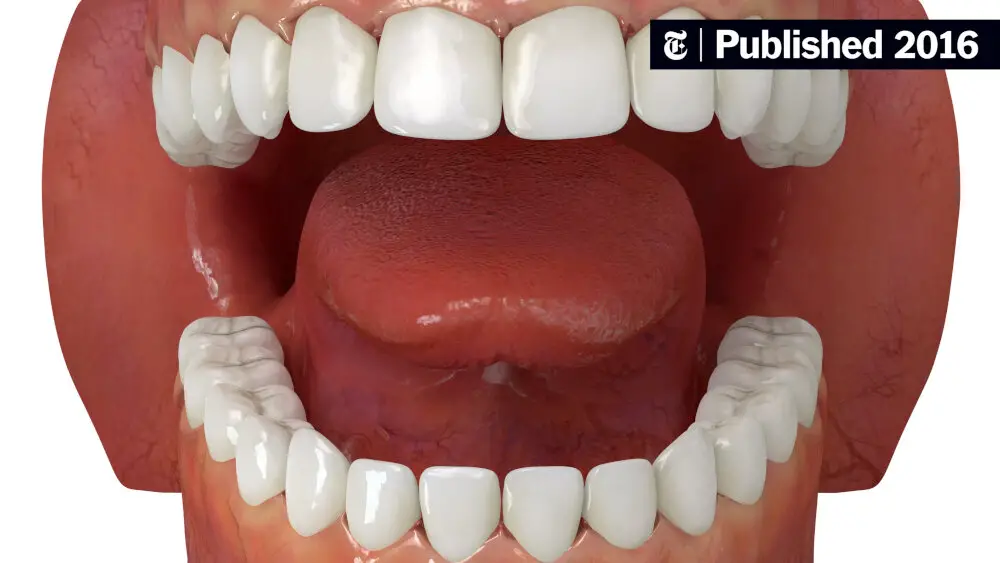
In conclusion, experiencing tingling sensations in your teeth can be a discomforting and sometimes even painful experience. However, the good news is that it’s often a common issue with simple remedies. Whether it’s due to tooth sensitivity, gum disease, or other underlying issues, there are various steps you can take to address the problem. From using desensitizing toothpaste and avoiding acidic foods to practicing good oral hygiene and seeking professional dental care, taking action can help alleviate the tingling and restore your dental health. So, don’t hesitate to explore the causes and remedies of teeth tingling, and take charge of your dental well-being today!


